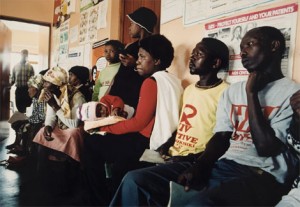One of the best things about mixing and mingling with the 900 or so science journalists and communications officers gathered at the World Conference of Science Journalists, is learning about how science communication is done in other parts of the world.
 And today, science communicators from western countries were given a sobering insight into how science journalism works in parts of the developing world, where a huge amount of science is underway but is largely overlooked by local media.
And today, science communicators from western countries were given a sobering insight into how science journalism works in parts of the developing world, where a huge amount of science is underway but is largely overlooked by local media.
Pseudo science from “experts” promising cures for AIDS and other diseases often grab headlines without the claims being properly verified.
“Those are the people that journalists will flock after,” said Diran Onifade, a journalist at Nigerian TV.
Onifade also outlined the corruption in the science system in many African nations that results in bribes being paid to buy prominent media exposure for scientific institutions.
As Onifade put it, an institution being visited by a wealthy philanthropist like Bill Gates can easily get a photo of the institute boss shaking hands with Gates on the front page of the national newspaper – as long as the price is right. The “off the books” transactions are a fact of life for scientific institutions public relations officers, said Onifade. The typical calculation is “X plus 1” or “X plus 10” – X being the amount a PR officer is willing to pay to have a story place, the figure following it being the additional amount the journalist or editor demands to publish the story.
With numerous clinical trials underway in African countries as drugs to treat everything from HIV to tuberculosis are tested, there’s a growing demand for skilled local journalists to accurately report the progress of such trials. But Onifade said such journalists were still thin on the ground.
“The people with the skills to pore through the facts and figures. They are not many.”
In the Middle East, science journalists have their own unique set of problems with language barriers and a lack of sophistication among science communication officers holding back science communication efforts.
“It’s always easier for me to know what’s happening in the US than it is to know what’s happening in the institution just across the street,” said Nadia El Awady, a Cairo-based science journalist.